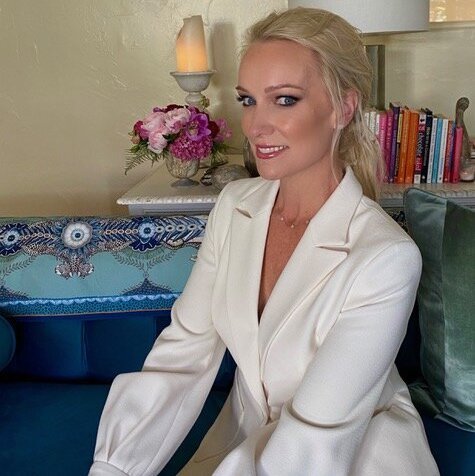Image By: Annie Barnett
Question
(Woman, 37, New York City) [It’s Complicated - actively dating]
“Hi Amy, I’ve recently started putting myself out there and met someone with that instant click. We’ve been out on several dates, we’ve been making vacation plans, and we have hour-long phone calls on off nights. Without a lot of effort, we’re getting closer naturally. This is a relatively new relationship, so I don’t want to rush into things, but at the same time I don’t want to get too intimate or vulnerable with someone who doesn’t have the same plans. I want to make this relationship exclusive before we get too close. How do I make that move into exclusivity?”
Andersen Advice
You can only be so lucky to meet someone that gives you that instant connection. The thrill, the butterflies, the way everything else just blurs into the background; they don’t call it a honeymoon for nothing! As you navigate this, it’s only natural that you start to wonder about sustainability—Could this be something that starts hot and freezes over? Or, could it be something more sustainable?
Before considering anything, take an objective look at your partner’s level of interest. Do they prioritize time with you? Do they consistently make an effort with your needs in mind? Words are important, but actions carry more weight. You’re looking for similar levels of investment. It can take time to understand if your partner is reliable and consistent, so give yourself some time to determine if they’re ready.
Even though you’re ready to talk exclusivity, I advise all my clients to take their time before taking this step. You noted that you’re not sure if you two have the “same plan”; exclusivity won’t guarantee the same long-term vision, it just guarantees that exploration for someone else is on hold.
In lieu of jumping straight into exclusivity, I would suggest weaving in questions that address compatibility. A lasting relationship requires a strong foundation, built on shared values and a sense of mutual growth. Even though you’re looking for answers, remember, this isn’t an interrogation. Be prepared to hear your partner openly, without trying to guide their answers or persuade them to rethink their choices.
If you’re ready to ask these questions, you should also be ready to answer them. I would start with these:
What is your goal in this relationship? A friend? A fling? A soulmate? This answer should help you understand what your partner can handle emotionally.
How do you define exclusivity and infidelity? This is going to help both of you figure out your romantic boundaries.
What are your expectations around romantic intimacy? Asking this will help you determine alignment on the physical front.
What kind of lifestyle would be ideal for you now and in the future? This question is going to help you understand financial expectations.
If you’re missing alignment or certainty around the answers to these questions, I’m not so sure entering an exclusive relationship makes sense if lifelong partnership is your goal. A lasting relationship requires a strong foundation, built on shared values and a sense of mutual growth. If you find yourselves in sync, it's a promising sign that it’s time to make it official.
Moving towards exclusivity is a gradual process; rushing things may lead to unnecessary pressure or strain. Be patient and allow this new relationship to evolve naturally. Healthy, happy, sexy relationships are built over time.
Affectionately yours,
Amy





